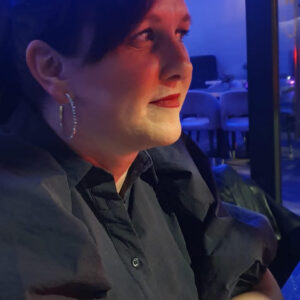
There is a good reason why I like the photo above so much.
For me, it represents trying to put the past behind me and I’m genuinely enjoying living in the moment! This would not have been the case several years ago. I couldn’t have imagined that there were better times ahead for me and my family than we had left behind.
One of the many reasons I couldn’t imagine this is because I had arrived at a point that I never thought I would. I found it hard to place my trust in people.
TRUST plays a big part in life. Without it, where would we be? It’s part of the foundation of every relationship we will ever have and I don’t just mean romantic relationships.
We trust our family and friends to love us, be there for us and to support us. We want to believe and trust things will work out eventually, even when we don’t know what the answer is to a particular situation we’re in.
Trust is such a precious commodity. It opens us up as human beings to be vulnerable with another person and to believe that person won’t hurt us. But when we believe it’s been broken, what then? Is it possible to ever place your trust in anyone ever again? The amazing thing about being human, is our resilience and our ability to keep moving forward, even in the face of adversity.
But I have to admit alongside forgiveness – which I talk about in my blog Forgiveness – Is It Possible? trust is another one I have found hard to wrap my head around!
So consider, those individuals who have experienced domestic abuse, it can be even more difficult to even consider trusting anyone ever again.
You don’t know if you even trust your own judgement anymore, let alone trusting in another person.
Your partner, a family member, whoever the abuser is – that person you placed your trust in and thought you knew 100% – all of a sudden, is like a stranger to you now. You don’t recognise them anymore.
Your world seems to implode and you’re left in shock, grieving for a relationship you thought you had and you’re left asking yourself the question, “how the hell did I end up here?”
The sad fact of the matter is, that person was ALWAYS a stranger to you, they haven’t changed, you have just started to see through the “fog” and the lived experience of abuse is becoming clearer to you. But you’re still reeling from the fact that your trust has been utterly abused.
I’ve thought a lot about trust, having worked with victims and survivors of domestic abuse and a thought came to me that, I now realise, has helped many people.
Ok, I think of it this way. Your ability to trust someone in the future hasn’t been taken away from you.
You believe it has because of the abuse you have endured.
But your ability to trust is still there.
How?
Because the abuser you placed your trust in, in that abusive relationship in the first place, DOESN’T EXIST. They aren’t real, the relationship was never genuine, or based on honesty, love, respect or truth. Yes on your part it was all of those things – but not on the part of the abuser.
They have been playing a very cunning role the whole time – sometimes for a considerable amount of time, but it’s a role none the less.
You still have the possibility in the future of placing your trust in something real and true.
Just think of that possibility!
So when it comes to how you face the road that’s ahead of you, what can you do?
Well, invariably, it’s a long road that’s for sure but you have every right to be wary and cautious of anyone who you choose to let into your life in the future.
You have every right to exercise any boundaries you have put in place for yourself. But your trust is YOURS to give – it hasn’t been destroyed because the relationship with the abuser wasn’t genuine.
My Dad gave me a very sound piece of advice some years ago when we were talking about trust.
He said, for him it’s a case of, “don’t tell me, show me.”
So, if someone truly wants to be in your life, and if they are truly worthy of you, then their actions will tell you everything you need to know.
And for those who are fortunate enough to eventually see through the abuse, they know that any relationship whether it’s with their partner or family, is based on love, honesty, trust, respect, to name but a few.
But an abuser’s only goal in any relationship is to satisfy their own wants and needs. And that’s not what a genuine relationship is built on.
Check out my Resources Page for useful links.
Don’t let the abuser steal one more moment of your time or have you believing you can never trust again because:
“There are better things ahead than any we leave behind.” – C.S. Lewis.
You can find me on Instagram

 Cart is empty
Cart is empty 







